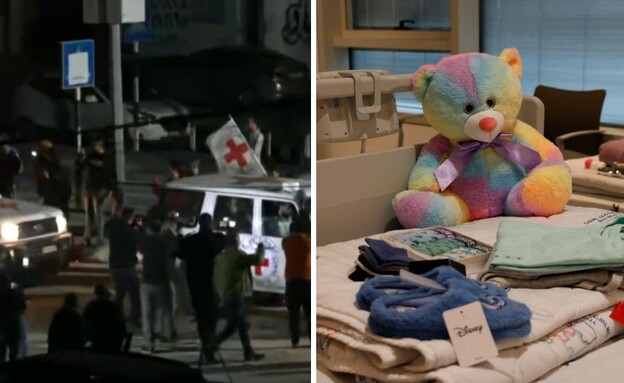According to Schwartz, “There is nothing allowed or forbidden, but we need to be aware of the wishes of the returnees. Along with the excitement of the family, it is important to pay attention to the situation and understand what is more correct and what is not. After more than a year, we expect a change in the personality of the returnees, and we need to be sensitive, pay attention to their rhythm, To understand what they are comfortable talking about and how comfortable the contact is for them, the main briefing is to understand this expected change among the returnees, and to show mental flexibility.”
Schwartz adds that despite the understandable desire to hug, touch, flood with questions or complete a year and three months in an hour, it is not certain that this is what is appropriate for the returnees. “Our main instruction to families is to simply be there for them, and be attentive to them. As we are used to doing in the context of social care – you don’t flood with questions, you first understand who is in front of you and proceed accordingly. The families should let them tell, not ask questions, even be It can be comfortable with them in silence over time, as it suits them and they will get used to the new situation, they will be open to other matters.”
“Preparing for a variety of reactions, including avoiding contact and staying away, even from family members”
Schwartz explains that it is possible that in the first few days the returnees will feel comfortable meeting only some of the family members, and will give up meetings with friends. “We will prepare the families for any response. From our experience in treating the wounded and Nova survivors over the past year, as well as from conversations we had with the teams that took in the returnees in the previous transaction, any response is normal to an abnormal event such as that of citizens held captive for more than a year. We are preparing for a variety of responses, including avoiding contact and staying away , also from family members. We also don’t know what conditions the returnees were in. Maybe they stayed in a very quiet area and any noise or commotion can cause them to feel overwhelmed Everything is taken into account. In any case, we will be like a fly on the wall, when they need us to come in and when they don’t – we will be there 24 hours a day to help and facilitate.”
According to Schwartz, the family members, who naturally know the returnees well, knew how to adapt to their pace. “In the end, these are their children, they know how to read them and know what suits them. We will help mediate between the returnees and the families, but we will not interfere in the family meetings.”
At the Bilinson Medical Center preparations were made for the reception of the returnees, among other things through simulations of the meetings of the returnees and their families. “We prepared for every situation. We conducted simulations in which family members even fainted when meeting the returnees. There were also simulations for cases where people react angrily, shouting, in order to prepare and understand how to calm them down, what to do in a situation of distance, how to explain it to the family, how to make them To understand that this is part of some kind of process is most important for us to allow both the returnees and their families, to understand that any reaction is fine, that one should not be alarmed by it but only contain it.”
